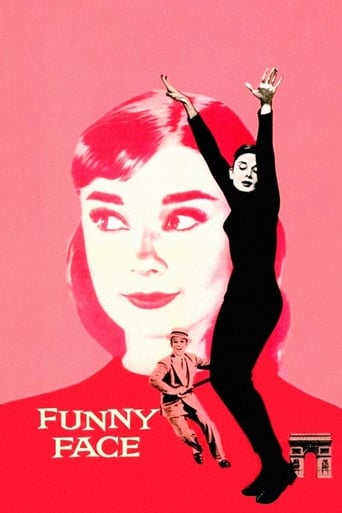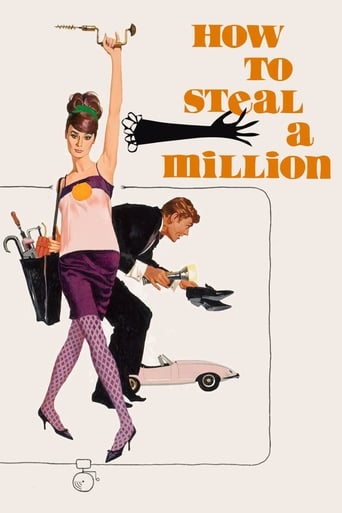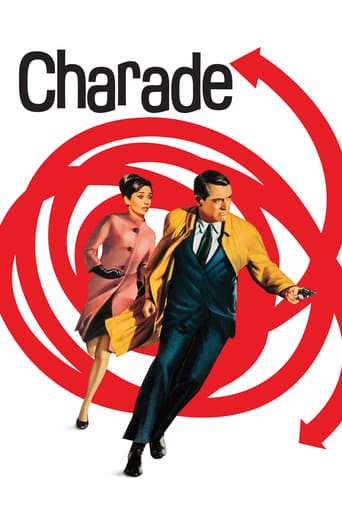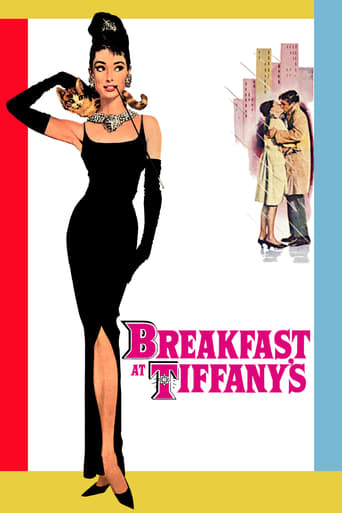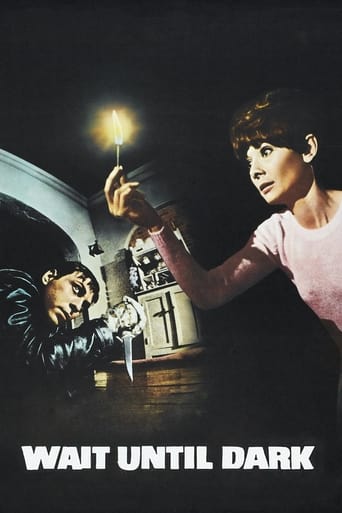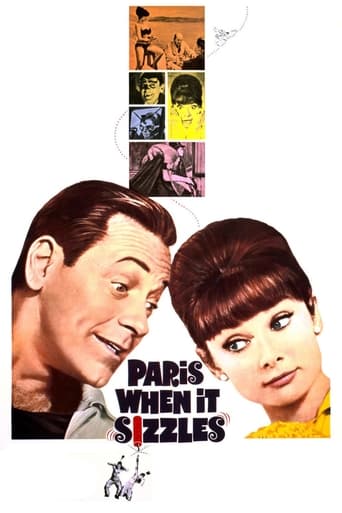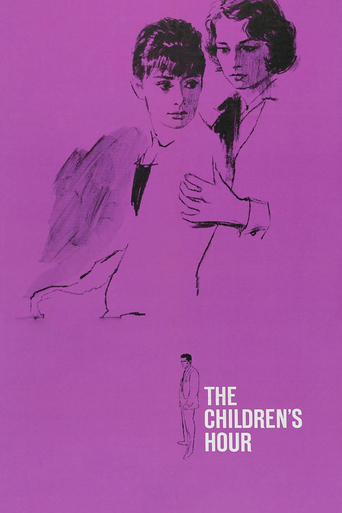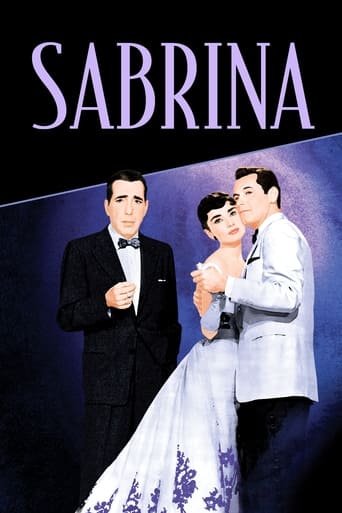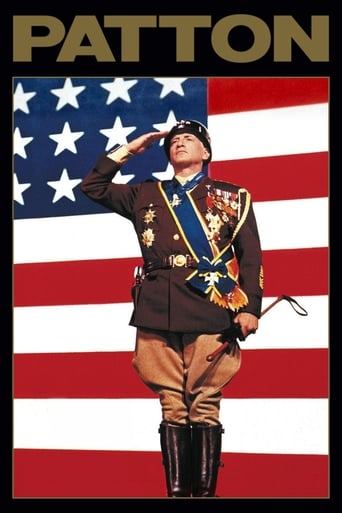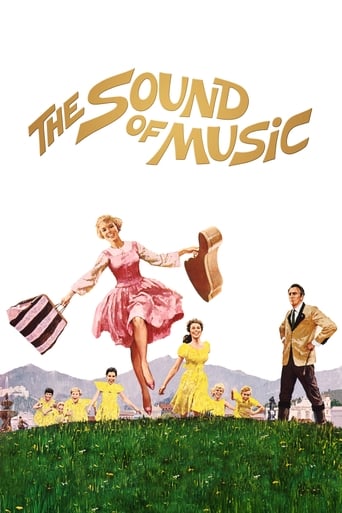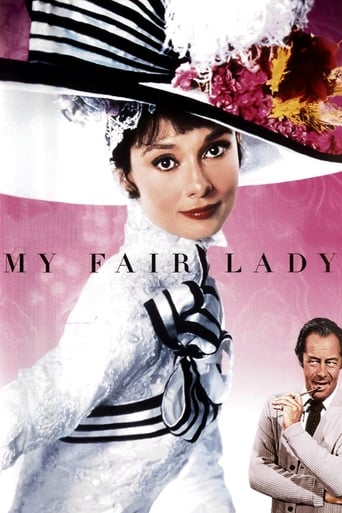


My Fair Lady
A snobbish phonetics professor agrees to a wager that he can take a flower girl and make her presentable in high society.
-
- Cast:
- Audrey Hepburn , Rex Harrison , Stanley Holloway , Wilfrid Hyde-White , Gladys Cooper , Jeremy Brett , Theodore Bikel


Similar titles
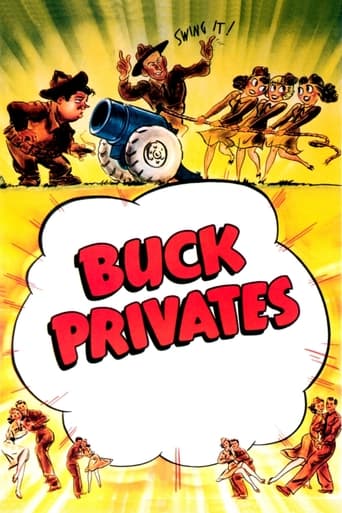
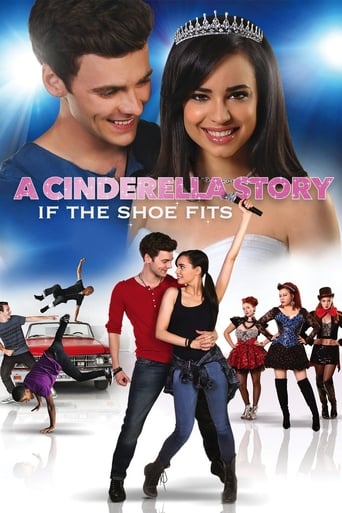
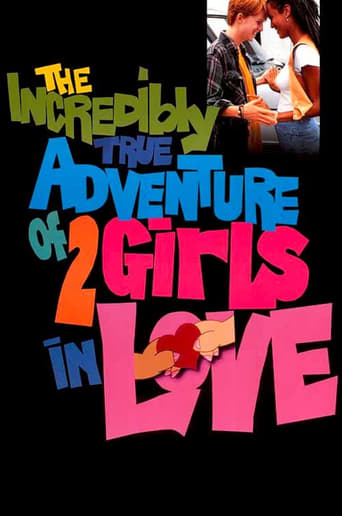
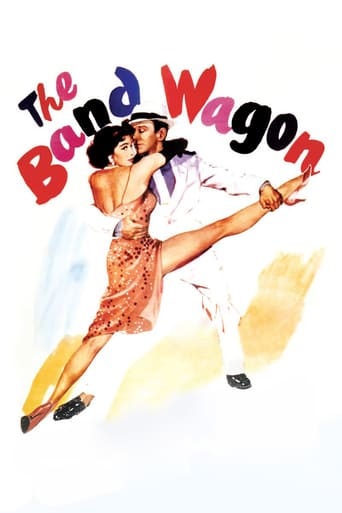
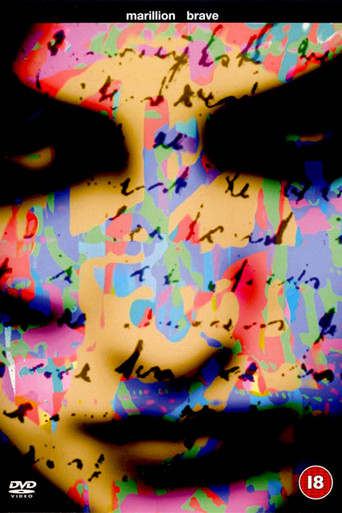
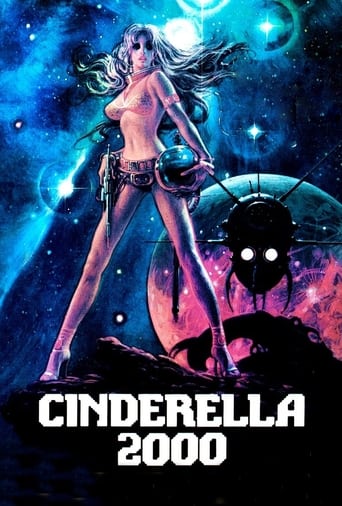
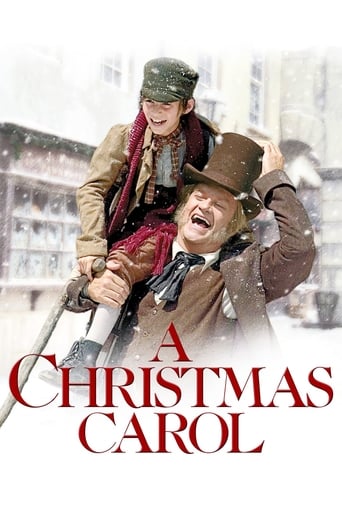
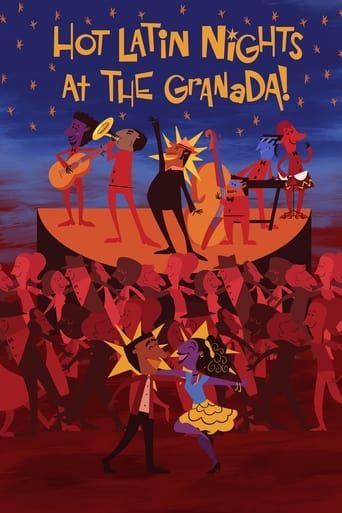
Reviews
I love this movie so much
The Age of Commercialism
Absolutely Fantastic
The movie turns out to be a little better than the average. Starting from a romantic formula often seen in the cinema, it ends in the most predictable (and somewhat bland) way.
Fairly speaking, vintage Hollywood musicals don't age well thanks to their tie-ins with ingrown fluffy affectation and sound-stage-bound artificiality, which doesn't see eye to eye with the surge of an ever-finicky/skeptical modern audience. But mercifully, MY FAIR LADY, George Cukor's Oscar BEST PICTURE title-holder, still can hold court and rivet viewers through its lilting numbers, tableaux vivants par excellence, and a barnstorming cast headlined by Audrey Hepburn and Rex Harrison. Cashing in on the popularity of George Bernard Shaw's stage play PYGMALION and its subsequent musical iteration from Lerner and Loewe, this film adaptation is first and foremost, a well- intention-ed crowd-pleas-er and takes no prisoners in flagging up its swagger and grandeur, both interior and exterior, the story-line pits a cockney flower seller Eliza Doolittle (Hepburn) against Prof. Henry Higgins (Harrison), a misogynistic scholar of phonetics, who boasts that under his tutelage, within a six-month stint, he can transmogrify Eliza into a bona-fide duchess, to be presented in an embassy ball. Making allowance for Henry's make-up, he is way too snobbish to rope "that filthy, silly girl" into the deal, so it must be Eliza, who takes up the gauntlet of her own accord, with an impetus of bettering herself which attunes with the Edwardian time, when suffragettes are spotted parading on the streets of London. Abetted by Colonel Hugh Pickering (Hyde-White), Henry's new acquaintance and a kindred spirit in phonetics (who also implausibly and conveniently, co-habits with the pair in Henry's abode, indeed, their male bonding will grow chummier as a cross-current of the central gender spar, and reach its apogee in A HYMN TO HIM, WHY CAN'T A WOMAN BE MORE LIKE A MAN), a bet is struck and this folie-à-trois segues comically and tunefully through many mishaps and frustrations until Eliza magically expunges her cockney accent in THE RAIN IN SPAIN, under the spell of a patriotic rhetoric from Henry, and then is thrown into elation through Eliza's I COULD HAVE DANCED ALL NIGHT, alas! The biggest hindrance has been officially conquered!(suspended disbelief is critical to countenance this deus ex ma-china, subtlety and logic is given a wide berth here.) A leitmotif is the paralleled contrast between the transformation of Eliza, her appearance/utterance along with her inner state elevated by it and the intransigence of Henry, who habitually treats Eliza as a guinea pig, and takes her efforts for granted, the climax comes not in the palatial ball, but after, when a simmering Eliza lets rip to a bemusing Henry, who still has no clue why she suddenly blows a fuse on their (him and Pickering's) triumphant night, what an exasperating pedantic and egoist bore! Serendipitously, what trenchantly tones down Henry's defective persona is Mr. Harrison's invigorating elocution and a left-field approach of doing his numbers by speaking his lines in a singsong tone, pertinently deadens the schmaltzy impact of the material (I'M AN ORDINARY MAN) and leavens the hoary template, in the end of the day, Henry is the one who has learned a lesson, however unmerited he is, it is a cracking exemplar of a none-too-pleasant character salvaged by a transcendent show-stopper. Needlessly to say, being dubbed in a musical by a splendid belt-er (in this case, the unsung star here is Marni Bixon) takes the shine off an otherwise wholesome and majestic performance from Ms. Hepburn (who replaced Julie Andrews from the original musical play, ironically the latter won an Oscar the same year for MARY POPPINS while the former was given a cold shoulder early in the nomination stage, albeit the movie was being doled out a magnanimous twelve nominations including that vexatious coattail one for the venerable Ms. Gladys Cooper, who is barely present and given nothing remotely concrete to act), not in her prime though (she was 35-year-young to play a 21-year-old damsel), her portrayal of a girl's metamorphosis through her manner, accent and inward orbit is magnificent and isn't being eclipsed by her gorgeous wardrobe and millinery accouterments, her Eliza is a full-bodied character rising above her rite of passage as a winner refusing to take the short end of the stick (although the ending predictably but gingerly winks at a compromised happy-ending). Stanley Holloway steals the limelight with his own voice in two merry pieces (WITH A LITTLE BIT OF LUCK and GET ME To THE CHURCH ON TIME) as Eliza's bullheaded father Alfred, and is granted with a hard-earned Oscar nomination (au contraire of Ms. Cooper); a young, handsome and debonair Jeremy Brett (also dubbed in his singing by Bill Shirley) is a commensurate match for Ms. Hepburn, and a genteel Wilfrid Hyde-White drolly slums it in the singing-and-dancing sequences but captures an air of lassez-faire pulsating mostly on the sideline of this humdinger emblazoned with sparkling gender politics and chipper euphony.
(Flash Review)This WON EIGHT Oscars. I didn't realize it was a musical; 2hr 50min one at that. I'm not a big musical guy and watched this because I've always heard so much about it so now I can check it off. This must have been a stage play converted to film as the film sets felt very theatrical. The core story is high class gentleman agrees to a bet that he can take a gutter garbage woman (pretty close to the film's description) and turn her into someone who can blend into high class society. By teaching her how to speak properly and with an articulate vocabulary in addition to manners and attire. Mix in a love story amongst a variety of singing pieces that do advance the story and build out character depth. The dialog was clever, quick and snappy and some sets and costumes were elegant and grand. It did feel long, not overly engrossing and not in my movie wheelhouse.
This film shows cinema at its finest in producing such a classy and acclaimed film and musical. Considering how cinema has taken a downward spiral with today's vulgar and thin plots this film could be considered as a remnant of the golden age of cinema. We see a refined and distrustful professor, Henry Higgins, who is cynical of everyone around him. From his maid, his close friends and even a simple unknown flower girl. As an accomplished and intelligent professor he is snobbish and part of high society. He is so confident in his abilities that he easily accepts a wager to change the flower girl he just made into a respectable lady. The acting from Rex Harrison deserves high praise, it is effortless and believable. The same can be said for Audrey Hepburn who plays the role of a low class person to perfection. We are also treated to first class music and performances from the cast, musicals never seemed so enjoyable. We see Henry teach Eliza how to be a lady and their constant quarrels. The experiment is such a success that high society is none the wiser as to her transformation. However Audrey feels like a prize or object in a rich white man's game. More importantly despite his success, the experience of tutoring Eliza has humbled him. The end of the film where they show respect and care for each other was a masterstroke as no romance was needed.
George Cukor's "My Fair Lady" is as close to auteur cinema as "Baby Geniuses" to "The Godfather", nothing remotely ambitious on the field of philosophy, religion or any form of abstract thinking, but I'm still using a word (one I personally hate) to describe it: it is a pretentious film. As intellectually vacuous as it is, it is pretentious in the sense that it takes a sweet, enchanting story, made of charming and engaging characters, and drag on for almost three hours for a plot requiring one hour less. This is a case where a little less would have been a lot more."West Side Story" was longer but its fast-paced rhythm and the catchy songs actually drove the plot instead of slowing it down, "The Sound of Music" felt a tad long, but it had a rather dense plot, while "My Fair Lady"'s can be summed up into a spot-it with a marker. It is about linguist Professor Higgings meeting a vulgar flower girl named Eliza Doolitlle and after months of training, he turns her into a lady, in the process, he falls in love with her, although he refuses to admit it. But in the end, they get together, bada-beep, bada-boom. There are a few subplots but they are merely dressing, the piece of resistance is what everyone remembers.Now, I'm not criticizing the conventional fairy-tale aspect of the story, but it was two-hour material, plain and simple. No, they had to stretch it to three hours, with the obligatory intermission. Obviously, they knew they had a Best Picture contender so it had to pretend to be as epic as "Lawrence of Arabia", "West Side Story" or "Tom Jones". So it takes like half an hour for the film to take off and basically, each significant moment is interrupted by a musical interlude, I liked the "With a Little Bit of Luck" song but what did it have to do with the story anyway? Apparently, we were supposed to enjoy it and that was enough a reason.The film actually makes me question the appeal of musicals, why should people singing and dancing together be an entertaining sight? My guess is that it was the taste of the time, and people loved to enjoy in theaters what they could see on the stage, or maybe it was the star-system and Audrey Hepburn and Rex Harrison were the kind of offers one couldn't refuse. But I'd rather have that sirtaki in "Zorbas" or five minutes of "Dr. Strangelove" than any of these tiresome musical acts, at least these films had something to show, even "Mary Poppins" had animation, I'm afraid "My Fair Lady" had a rather thin plot with music used as fillers,It is a difficult-to-review film because I'm not really even interested in reviewing it, it is even based on a lie, that Audrey Hepburn could be believable as a crass girl, it's like imagining Grace Kelly playing a prostitute, there's nothing such as limited range, but we know Hepburn can only "act" her way through a character like Eliza Doolittle and gets easier to handle once she becomes the classy woman she's always been, that ugly duckling thing couldn't fool anyone, and if she didn't overact, she way overdid her accent. Rex Harrison, as annoying as sexist as he was, was pretty convincing as Higgins but the whole relationship rang abominably false. It is supposed to be a love story but most of the time, these two keep snarling at each other, they couldn't even exchange one lousy kiss at the end, I know it's all about subtext, but still. Still, this film worked and became one of the all-time box-office successes, an event by itself, one I would never get. And don't get me started with the Oscars. Granted the film won the Best Costume, Art Direction and all the categories you'd never remember the names, but Best Picture? Best Director? What makes Cukor's directing so exceptional? Is it more difficult to direct a film like this than "Strangelove"? The 60's used to reward cinematic excellence but art shouldn't be made at the expense of a story, and it's only justice that "Dr. Strangelove" is more celebrated today than "My Fair Lady". And if you want an excellent romance with Audrey Hepburn, take "Roman Holiday" or "Sabrina".There's one thing I enjoyed though, it was the Bonus features and I was more interested to see Rex Harrison being natural and Audrey Hepburn as sweet as usual, I thought to myself, I don't know if younger actors would've been as good, but if the cast had played these parts as naturally, it could have been something. And then there was Jack Warner who, during a press conference, made a remarkable speech about old school Hollywood cinema and wished directors wouldn't try to copy European filmmakers, you could tell the disdain in his tone, well, he was right in foreshadowing the end of the studio system (and even in the interviews, the productions costs were a matter of discussions), these costly musicals almost bankrupted the studios, because for one "My Fair Lady", you had a few disasters.The film marks with "The Sound of Music" the swan songs of an era , the time for better movies were to come, and it's extraordinary to believe that the film was only two years before "Who's Afraid of Virginia Woolf" and three before "Bonnie and Clyde" and "The Graduate". Being a hardcore New Hollywood fan, a production like "My Fair Lady" could only make me feel cold, I'm not even sure this will be a review I'd love to read again once.... but I'll end with a piece of advice, you want to see it? Fine. Be sure you're doing something at the same time, otherwise, time will feel painfully long.

